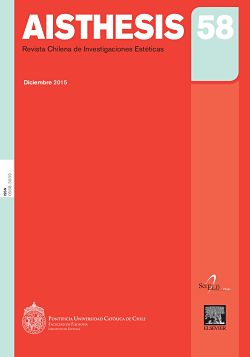Pasolini and Zurita: Food Torture
Main Article Content
Abstract
Italian filmmaker Pier Paolo Pasolini’s Saló film and Zurita, poetry book by chilean author Raúl Zurita, share the depiction of violence over human bodies as an effect of the alliance between Politics and the Law, a very common feature on totalitarian governments. All actions are exerted by means of laws dealing not only with public spaces, but also private ones, including sexual intercourse, feeding, and defecation. Both authors discuss these actions in the context of closed locations. Pasolini turns the palace and its prisoners into a metonymy for all nation, and Zurita links the territories of Latin-American nations to extermination practices.
Downloads
Article Details

This work is licensed under a Creative Commons Attribution-NonCommercial-ShareAlike 4.0 International License.
All contents of this electronic edition are distributed under the Creative Commons license of "Attribución-shareAlike 4.0 Internacional" (CC-BY-SA). Any total or partial reproduction of the material must mention its origin.
The rights of academic works published in this publication belong to their authors., who grant to AISTHESIS: Revista Chilena de Investigaciones Estéticas the license for its use. The management of the permits and the authorization of the publication of the images (or of any material) that contains copyright and its consequent rights of reproduction in this publication is the sole responsibility of the authors of the articles
